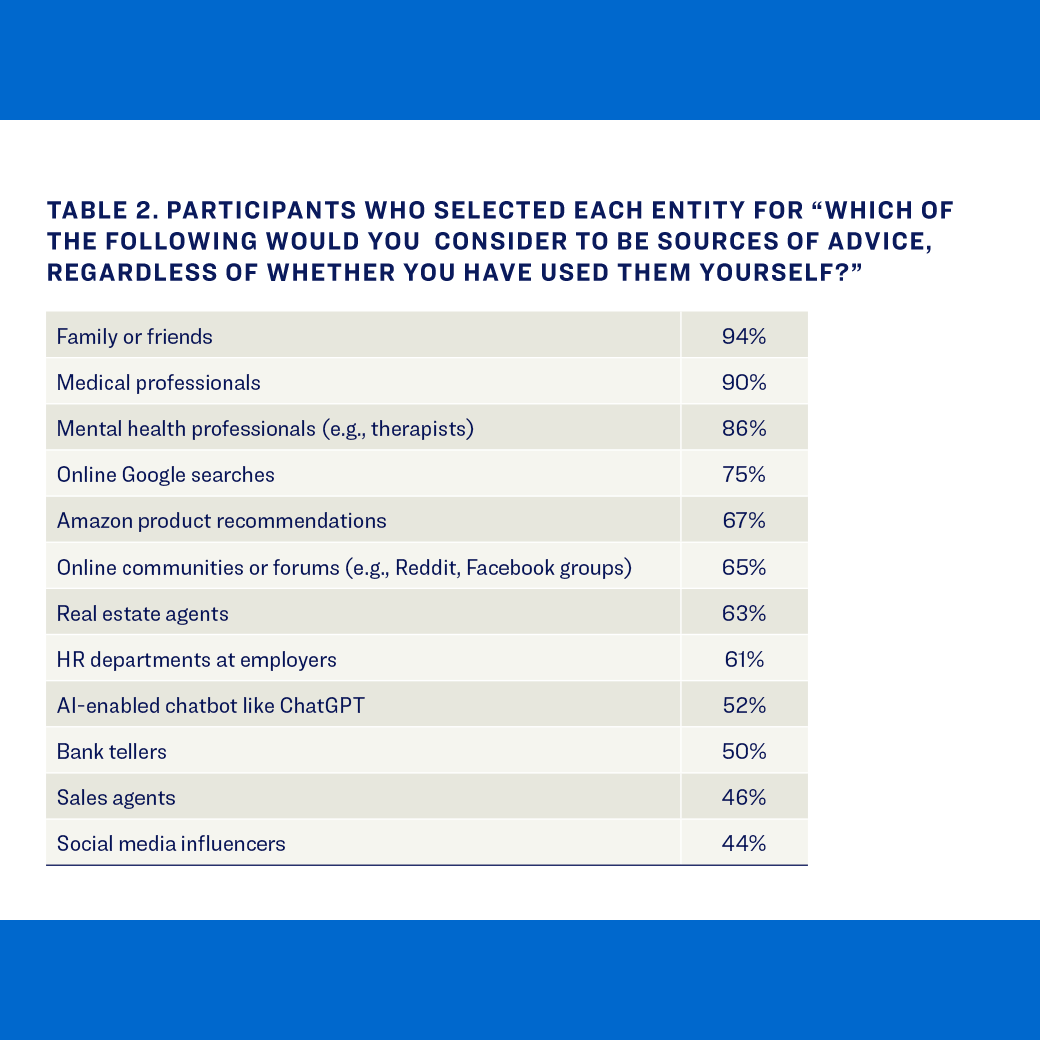In a world transformed by AI and flooded with information, what’s the future hold for the advice industry?
Summary
Important life decisions spanning finance, family, health, work and home often require advice—and changing demographics, longer lifespans and new technologies are reshaping the nature of that advice and how it’s delivered. This study, conducted jointly by the TIAA Institute and MIT’s AgeLab, examines what U.S. consumers want in an advisor, and what today’s socioeconomic landscape implies for the future of advice.
Key Insights
- 94% of Americans seek guidance from family and friends, but only about 40% are satisfied with the advice they receive.
- 62% view advisors primarily as sources of information, but preferences vary among demographic groups. African Americans and Hispanics, for example, often prefer advisors who act as supporters and mentors.
- Women and men approach advice differently—from when they seek it, to what they value in an advisor, to how they prefer to communicate.
- Most Americans still get advice through in-person meetings and phone calls, but newer methods like podcasts and social media are gaining momentum, particularly among men aged 18-54.
- The three most critical characteristics in an advisor are the ability to explain complex concepts, understand client goals, and maintain high ethical standards.



